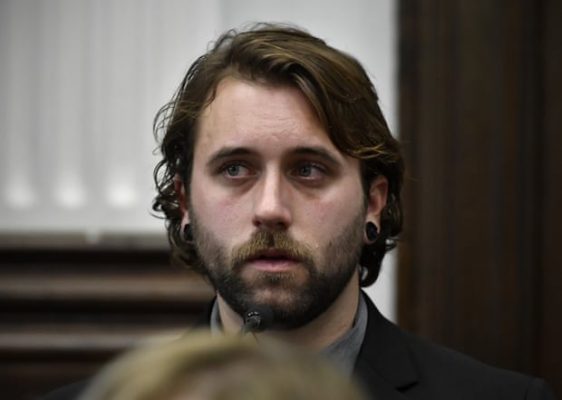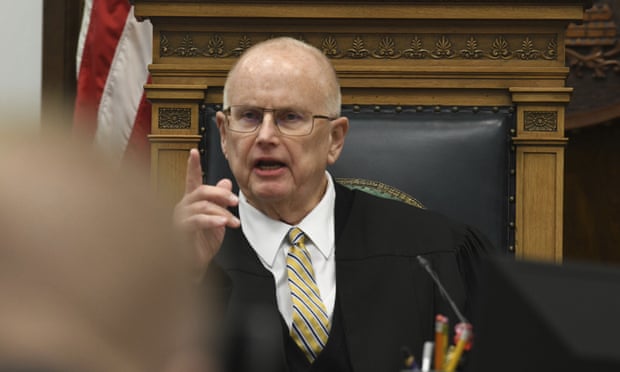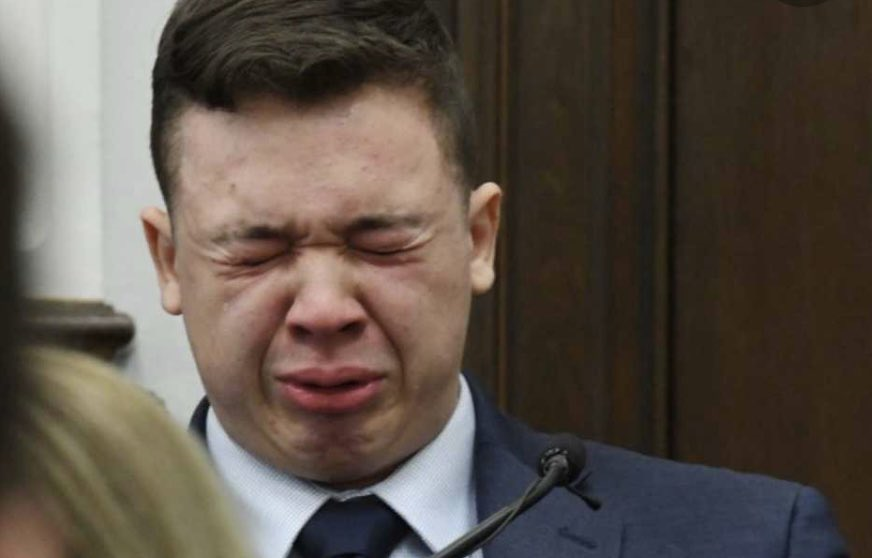News trend
Kyle Rittenhouse acquittal: five key takeaways from the courtroom drama
Tears, conflicting testimony and a judge’s controversial ringtone all came into play in a contentious trial that gripped America
The acquittal of Kyle Rittenhouse – who killed two men and injured another during anti-racism protests in Kenosha, Wisconsin – came after a contentious and controversial trial that gripped America.
For many people Rittenhouse’s treatment was seen as revealing the favorable treatment that a white and armed militia supporter received from law enforcement when compared with police attitudes to anti-racism protesters.
Here are five key moments that happened as the courtroom drama played out.
The prosecution: ‘The only person who killed anyone’
In his dramatic opening statement on 2 November, Kenosha county assistant district attorney Thomas Binger portrayed Rittenhouse as an antagonist who chose to exacerbate tensions. Binger argued that not only did Rittenhouse deliberately contribute to the chaos on the night of unrest last August, but that he was also the sole individual who killed others.

“The evidence will show that hundreds of people were out on the street experiencing chaos and violence, and the only person who killed anyone was the defendant, Kyle Rittenhouse,” Binger told the court.
Defense attorney Mark Richards pushed back against the claim, arguing: “The government can refer to [Rittenhouse] all they wish as an active shooter … The only person he had shot was Joseph Rosenbaum, who had made threats to kill.”
Prosecution setback: state’s witnesses bolstering self-defense claim
Throughout the trial, several of the state’s witnesses appeared to have bolstered Rittenhouse’s self-defense argument, including Gaige Grosskreutz, the 27-year-old man he injured. Grosskreutz testified that he carried a loaded gun that night and acknowledged that it was aimed at Rittenhouse when Rittenhouse shot him.
During cross-examination, defense attorney Corey Chirafisi asked Grosskreutz, “It wasn’t until you pointed your gun at him, advanced on him … that he fired, right?”

“Correct,” Grosskreutz answered. He has, however, affirmed that he did not intend to point his pistol at Rittenhouse, saying, “That’s not why I was out there. It’s not who I am.” Grosskreutz, who trained as a paramedic, testified that he volunteered as a medic at the protest.
Another witness, videographer Richie McGinniss, described the 36-year-old Joseph Rosenbaum, whom Rittenhouse fatally shot, as chasing after Rittenhouse and lunging for his gun. When Binger pressed McGinniss to concede he did not know what Rosenbaum’s intent was, McGinniss had a pointed – and damaging – answer.
“Well,” McGinniss replied, “He said, ‘Fuck you,’ and then he reached for the weapon.”
Prosecutors also asked Kariann Swart, Rosenbaum’s fiancee, whether he had taken medication earlier on the day he was shot. By asking that question, Judge Bruce Schroeder ruled, prosecutors opened the door for the defense to ask Swart what the medication was for. Swart revealed that it was for bipolar disorder and depression during cross-examination, in turn potentially adding credibility to the idea that Rosenbaum was an unstable aggressor.
Rittenhouse cries on the stand
After Rittenhouse took the stand, the trial took an emotional turn when the 18-year old broke down crying uncontrollably as he described being “ambushed” by Rosenbaum, whom he said ran at him threatening to kill him.
“I didn’t do anything wrong. I defended myself,” Rittenhouse told the court. “Once I take that step back, I look over my shoulder and Mr Rosenbaum was now running from my right side. I was cornered in front of me … and there were people right there,” he said before he began crying.

Wendy Rittenhouse, his mother, sobbed loudly as she watched on.
Schroeder ordered a 10-minute break for Rittenhouse to compose himself. The defendant remained largely composed throughout the rest of the day, though his voice did break at times during the tough cross-examination by the prosecution.
More prosecution missteps
During Rittenhouse’s cross-examination, Schroeder asked the jury to leave the courtroom twice before sharply admonishing the prosecution for its line of questioning.
The startling turn came when Binger asked Rittenhouse about whether it was appropriate to use deadly force to protect property. He also questioned Rittenhouse’s silence after his arrest, as was his right.
Schroeder erupted at Binger, accusing him of pursuing improper line of questioning and trying to introduce testimony that the judge earlier said he was inclined to prohibit.

“When you say you were acting in good faith, I don’t believe you,” Schroeder said to Binger. At one point, he yelled, “Don’t get brazen with me!”
The defense asked for a mistrial with prejudice, meaning that if one is granted, Rittenhouse cannot be retried in the shootings. Schroeder said he would consider the matter but let the rest of the trial unfold.
A judge’s ringtone: ‘God Bless the USA’
During last Wednesday’s cross-examination, Schroeder’s phone suddenly rang to the ringtone of God Bless the USA. Released in 1984 by Lee Greenwood, the song is popular in conservative circles and often played as Trump’s entrance theme during his rallies.

Schroeder’s ringtone prompted many criticisms online, with many arguing that it further reveals his potential bias in the case.
Schroeder was previously accused of establishing a double standard by the prosecution when he ruled prior to the trial that prosecutors could not refer to the men shot by Rittenhouse as “victims” whereas defense attorneys may call them “arsonists” or “looters”.
Source: theguardian.com
Fuck Kyle shirt





